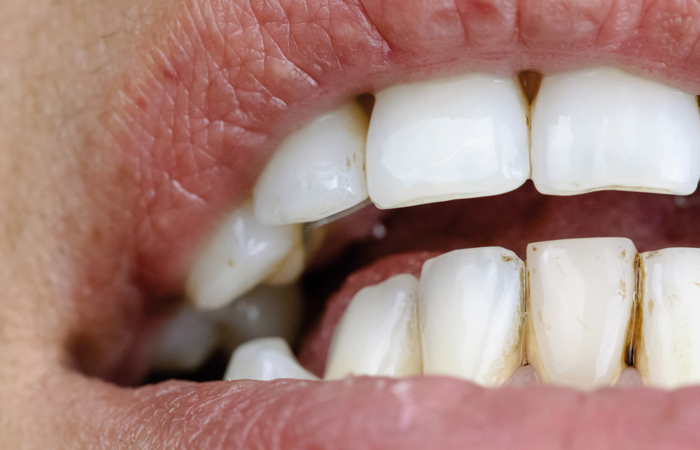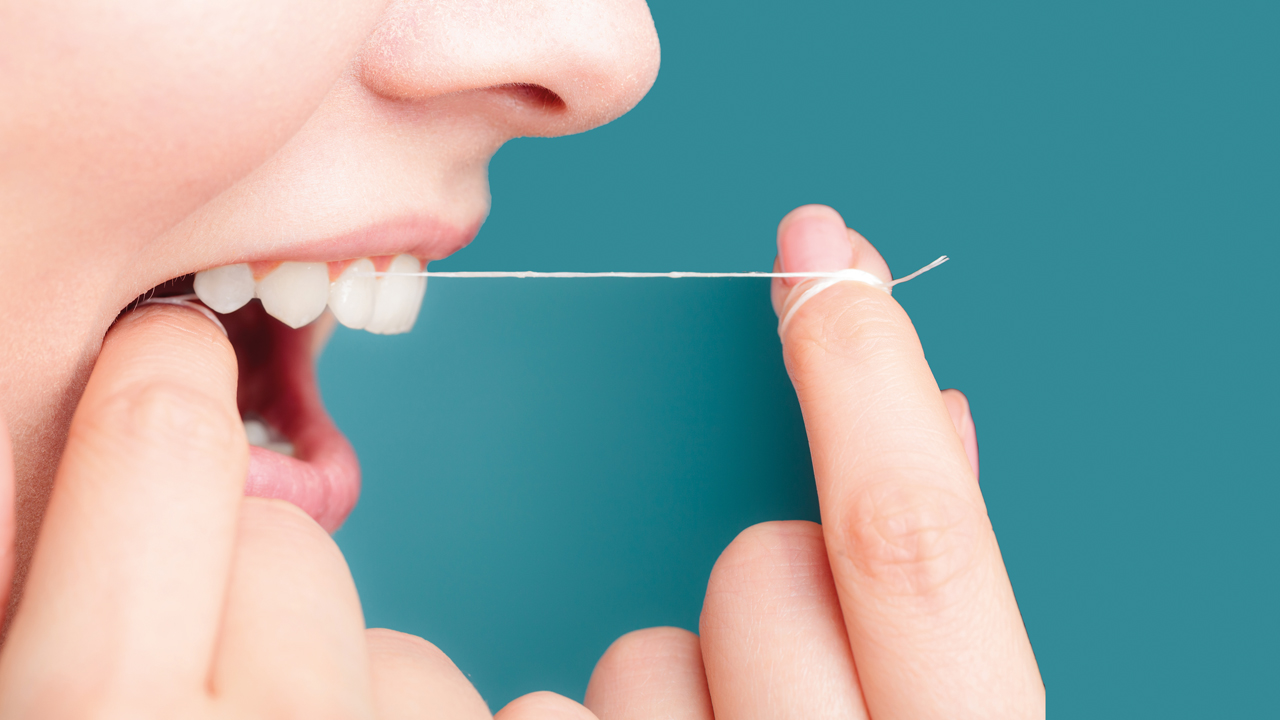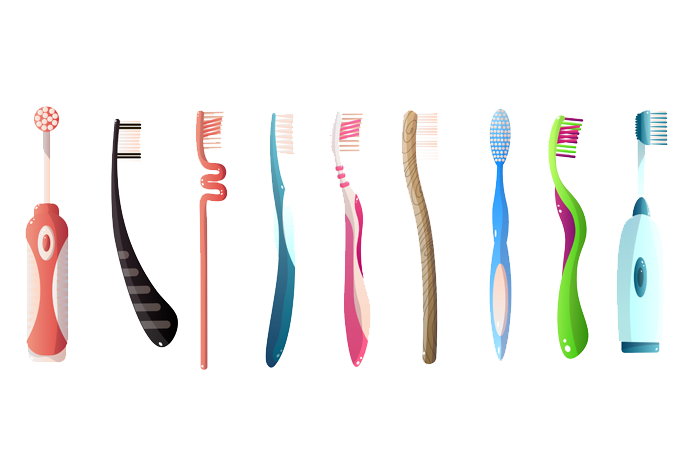In OTC
Follow this topic
Bookmark
Record learning outcomes
“Be proud of your mouth. In other words, value and take care of it,” is the simple but powerful message of World Oral Health Day (20 March) for 2021-23.
The campaign aims to empower people with the knowledge, tools and confidence to secure good oral health.
Oral diseases are a major health concern and can affect people throughout their lives, leading to pain and discomfort, social isolation and a loss of self-confidence. Furthermore, these diseases are often linked to other serious health issues. Yet most of them are largely preventable and can be treated in their early stages to reduce the risk of complications.
So, what can pharmacy customers do to look after their lips, mouth and teeth more effectively and treat common oral health problems – and what advice can pharmacy teams offer?
Read my lips
Chapped lips can be triggered by hot and cold weather and may also be a sign of dehydration or a vitamin deficiency. They may feel dry, tight and uncomfortable and may become cracked and painful over time. Prevention is better than cure, by keeping lips well-moisturised at all times.
“If you have chapped lips, you must keep an eye on them to prevent them from hurting you,” says Karen Coates, dental nurse and oral health content specialist at the Oral Health Foundation (OHF).
“Keep lips lubricated in the winter, and windy weather and if you are suffering from a cold or have a blocked nose, use petroleum jelly or lip salve. If you mouth breathe, apply the products before you go to bed at night, to help to prevent your lips from drying out during the night.”
Product updates from Training Matters:
TePe Choice™
TePe Choice™ is a new toothbrush featuring a reusable beechwood handle and three changeable bioplastic brush heads, which are produced using a Mass Balance approach,1 resulting in a lower carbon footprint, according to manufacturer TePe.
Replacing only the brush head helps to reduce plastic waste, whilst the bristles are made from castor oil, for gentle cleaning, adds the company. The brush comes in 100 per cent recyclable packaging and is available to buy at dental wholesalers and online.
Contact: TePe
Ref 1. The Mass Balance process is independently audited by the ISCC and uses existing plastic manufacturing infrastructure but with more sustainable raw materials.
Product updates from Training Matters:
TePe Choice™
TePe Choice™ is a new toothbrush featuring a reusable beechwood handle and three changeable bioplastic brush heads, which are produced using a Mass Balance approach,1 resulting in a lower carbon footprint, according to manufacturer TePe.
Replacing only the brush head helps to reduce plastic waste, whilst the bristles are made from castor oil, for gentle cleaning, adds the company. The brush comes in 100 per cent recyclable packaging and is available to buy at dental wholesalers and online.
Contact: TePe
Ref 1. The Mass Balance process is independently audited by the ISCC and uses existing plastic manufacturing infrastructure but with more sustainable raw materials.
Down in the mouth
Mouth ulcers can develop anywhere in the mouth, including the lips. These painful sores are usually red or yellow and may be the size of a pencil top, occasionally occurring in clusters of four to six at a time.
“Single mouth ulcers can occur as a result of damage to the mouth from accidental biting, a sharp tooth edge or filling, or damage caused by eating hot or sharp foods such as crisps,” says Dr Alan Clarke of Paste Dental in Belfast. “A poor brushing technique and badly fitting dentures and braces can also be contributory factors. Foods such as chocolate, tomatoes, strawberries, wheat flour and some nuts (including peanuts and almonds), as well as eating spicy dishes such as curries, can increase the likelihood of developing mouth ulcers.”
Mouth ulcers usually clear up on their own once the source of the damage has been resolved, such as smoothing down a jagged tooth or adjusting a denture. Some people use mouth ulcer creams, gels and other products to ease the discomfort. Large ulcers can take longer to heal and should be checked out by a dentist if they last for longer than three weeks or keep coming back. Recurrent or persistent mouth ulcers in adults may be caused by an infection, anaemia and some other blood disorders or certain skin or digestive diseases. Mouth cancer sometimes first appears as a single mouth ulcer, often on or under the tongue, and may be linked to heavy smoking and drinking.
Mouth ulcers can develop anywhere in the mouth, including the lips. These painful sores are usually red or yellow and may be the size of a pencil top, occasionally occurring in clusters of four to six at a time.
“Single mouth ulcers can occur as a result of damage to the mouth from accidental biting, a sharp tooth edge or filling, or damage caused by eating hot or sharp foods such as crisps,” says Dr Alan Clarke of Paste Dental in Belfast. “A poor brushing technique and badly fitting dentures and braces can also be contributory factors. Foods such as chocolate, tomatoes, strawberries, wheat flour and some nuts (including peanuts and almonds), as well as eating spicy dishes such as curries, can increase the likelihood of developing mouth ulcers.”
Mouth ulcers usually clear up on their own once the source of the damage has been resolved, such as smoothing down a jagged tooth or adjusting a denture. Some people use mouth ulcer creams, gels and other products to ease the discomfort. Large ulcers can take longer to heal and should be checked out by a dentist if they last for longer than three weeks or keep coming back. Recurrent or persistent mouth ulcers in adults may be caused by an infection, anaemia and some other blood disorders or certain skin or digestive diseases. Mouth cancer sometimes first appears as a single mouth ulcer, often on or under the tongue, and may be linked to heavy smoking and drinking.
Saliva has many roles in the mouth, including neutralising acidic foods and breaking down food when chewing. Some people find that they have problems with swallowing when their saliva flow is affected. Saliva also helps to fight tooth decay and gum disease.
A dry mouth (xerostomia) may develop as people get older or may affect women going through the menopause. It can also be a side effect of certain medicines (e.g., for heart problems, blood pressure or depression) and medical treatments such as radiotherapy. Sometimes it’s triggered directly by a medical condition, such as diabetes, lupus, Sjogren’s syndrome and blocked salivary glands.
Any underlying cause of a dry mouth needs to be diagnosed and addressed. Over-the-counter (OTC) saliva substitutes, such as mouth sprays, gels, rinses and sugar-free lozenges, may help to combat a persistent dry mouth – some have added ingredients to protect against tooth and gum problems.
“Drinking water throughout the day will help to keep the mouth moist – sip rather gulp,” says Dr Sulaman Anwar, registered specialist periodontist based in London and Surrey. “Avoid caffeine, alcohol and tobacco, as they can all contribute to dehydration and worsen dry mouth symptoms. Reduce the frequency of sugary or acidic foods and drinks and snack less. Chew sugar-free gum as this can stimulate the production of saliva.”
Saliva has many roles in the mouth, including neutralising acidic foods and breaking down food when chewing. Some people find that they have problems with swallowing when their saliva flow is affected. Saliva also helps to fight tooth decay and gum disease.
A dry mouth (xerostomia) may develop as people get older or may affect women going through the menopause. It can also be a side effect of certain medicines (e.g., for heart problems, blood pressure or depression) and medical treatments such as radiotherapy. Sometimes it’s triggered directly by a medical condition, such as diabetes, lupus, Sjogren’s syndrome and blocked salivary glands.
Any underlying cause of a dry mouth needs to be diagnosed and addressed. Over-the-counter (OTC) saliva substitutes, such as mouth sprays, gels, rinses and sugar-free lozenges, may help to combat a persistent dry mouth – some have added ingredients to protect against tooth and gum problems.
“Drinking water throughout the day will help to keep the mouth moist – sip rather gulp,” says Dr Sulaman Anwar, registered specialist periodontist based in London and Surrey. “Avoid caffeine, alcohol and tobacco, as they can all contribute to dehydration and worsen dry mouth symptoms. Reduce the frequency of sugary or acidic foods and drinks and snack less. Chew sugar-free gum as this can stimulate the production of saliva.”
BMS can cause a hot feeling or sensation anywhere inside the mouth, although the affected areas won’t be hot to touch and may not appear red. Other symptoms include numbness or tingling of the mouth or tongue, a bitter or metallic taste, or a dry or sore mouth.
The cause is unknown, but possible triggers include hormonal changes, stress or anxiety, immune system problems, a reaction to certain types of toothpastes or mouthwashes, or an allergy. Medical causes include a dry mouth, acid reflux, diabetes, thyroid problems, thrush and certain nutritional deficiencies (e.g., iron, folic acid or vitamin B12).
Everyone with BMS symptoms should speak to their dentist, who may refer them to their GP for further tests. The treatment will depend on the underlying cause and may include counselling, relaxation and hypnotherapy to cope with chronic pain. It’s important to avoid anything that irritates the mouth, such as hot and spicy foods, mouthwashes containing alcohol, and acidic fruits and juices.
BMS can cause a hot feeling or sensation anywhere inside the mouth, although the affected areas won’t be hot to touch and may not appear red. Other symptoms include numbness or tingling of the mouth or tongue, a bitter or metallic taste, or a dry or sore mouth.
The cause is unknown, but possible triggers include hormonal changes, stress or anxiety, immune system problems, a reaction to certain types of toothpastes or mouthwashes, or an allergy. Medical causes include a dry mouth, acid reflux, diabetes, thyroid problems, thrush and certain nutritional deficiencies (e.g., iron, folic acid or vitamin B12).
Everyone with BMS symptoms should speak to their dentist, who may refer them to their GP for further tests. The treatment will depend on the underlying cause and may include counselling, relaxation and hypnotherapy to cope with chronic pain. It’s important to avoid anything that irritates the mouth, such as hot and spicy foods, mouthwashes containing alcohol, and acidic fruits and juices.

By the skin of your teeth
Erosion is the loss of tooth enamel caused by an acid attack. When the hard enamel is worn away, the dentine underneath is exposed, which may lead to pain and sensitivity to heat and cold or acidic foods and drinks. This can be caused by a regular intake of acidic foods and drinks (even diet brands, fruit and fruit juices), bulimia, acid reflux or oesophageal problems.
“Limit acidic products and fizzy drinks to mealtimes,” says Karen. “Drinks should be swallowed quickly to avoid contact with the teeth – using a straw can help. Finish a meal with milk or cheese, which helps neutralise the acid in your mouth, while sugar-free chewing gum helps to produce more saliva, which also neutralises the acid. Wait at least one hour after eating or drinking before you brush your teeth. This allows for the mineral content to be built-up again.”
Most people get sensitive teeth from time to time, with women being affected more than men. The sensitivity can range from getting a mild twinge to having severe discomfort for several hours at a time. Some toothpastes and toothbrushes are specifically marketed for people with sensitive teeth or dental erosion. These products may be high in protective fluoride, are less abrasive, contain ingredients to ease the pain of sensitivity, protect the tooth enamel from acid attack and remineralise acid-softened tooth enamel.
Other dental issues
Tooth decay (dental caries) is caused by plaque acids gradually dissolving away the enamel and sensitive dentine of the tooth until the inner pulp becomes exposed. This may lead to the tooth needing to be filled or even taken out.
Tooth decay (dental caries) is caused by plaque acids gradually dissolving away the enamel and sensitive dentine of the tooth until the inner pulp becomes exposed. This may lead to the tooth needing to be filled or even taken out.
Toothache is a warning sign that there’s something wrong so it should always be investigated by a dentist, even if it lasts for only a few seconds at a time.
Prevention is better than cure when it comes to toothache,” says Dr Clarke. “Regular dental check-ups combined with regular brushing (twice daily) and cutting down on sugary foods and drinks will help to keep teeth and gums healthy. Before focusing on technique, it’s important to have the correct equipment for the job. The average adult should choose a small to medium-sized brush head with soft to medium bristles that can reach into all parts of the mouth, especially hard-to-reach areas. A good quality 1450ppm fluoride toothpaste should also be used.”
If someone is experiencing toothache, they may be able to manage the pain themselves while waiting for their dental appointment. Dr Anwar says that taking OTC painkillers such as paracetamol or ibuprofen may help. “Saltwater rinsing is antibacterial and can relieve soreness from the gums,” he says. “Applying a cold compress or ice pack to the affected area can help to reduce swelling and numb pain. Clove oil is a natural numbing agent and can be applied directly to the affected tooth or gum using a cotton bud.”
Toothache is a warning sign that there’s something wrong so it should always be investigated by a dentist, even if it lasts for only a few seconds at a time.
Prevention is better than cure when it comes to toothache,” says Dr Clarke. “Regular dental check-ups combined with regular brushing (twice daily) and cutting down on sugary foods and drinks will help to keep teeth and gums healthy. Before focusing on technique, it’s important to have the correct equipment for the job. The average adult should choose a small to medium-sized brush head with soft to medium bristles that can reach into all parts of the mouth, especially hard-to-reach areas. A good quality 1450ppm fluoride toothpaste should also be used.”
If someone is experiencing toothache, they may be able to manage the pain themselves while waiting for their dental appointment. Dr Anwar says that taking OTC painkillers such as paracetamol or ibuprofen may help. “Saltwater rinsing is antibacterial and can relieve soreness from the gums,” he says. “Applying a cold compress or ice pack to the affected area can help to reduce swelling and numb pain. Clove oil is a natural numbing agent and can be applied directly to the affected tooth or gum using a cotton bud.”
Down in the mouth


By the skin of your teeth
Erosion is the loss of tooth enamel caused by an acid attack. When the hard enamel is worn away, the dentine underneath is exposed, which may lead to pain and sensitivity to heat and cold or acidic foods and drinks. This can be caused by a regular intake of acidic foods and drinks (even diet brands, fruit and fruit juices), bulimia, acid reflux or oesophageal problems.
“Limit acidic products and fizzy drinks to mealtimes,” says Karen. “Drinks should be swallowed quickly to avoid contact with the teeth – using a straw can help. Finish a meal with milk or cheese, which helps neutralise the acid in your mouth, while sugar-free chewing gum helps to produce more saliva, which also neutralises the acid. Wait at least one hour after eating or drinking before you brush your teeth. This allows for the mineral content to be built-up again.”
Most people get sensitive teeth from time to time, with women being affected more than men. The sensitivity can range from getting a mild twinge to having severe discomfort for several hours at a time. Some toothpastes and toothbrushes are specifically marketed for people with sensitive teeth or dental erosion. These products may be high in protective fluoride, are less abrasive, contain ingredients to ease the pain of sensitivity, protect the tooth enamel from acid attack and remineralise acid-softened tooth enamel.
Dentures
Dentures should be treated with the same care as natural teeth to avoid inflamed gums or infections. This involves regular brushing to remove bits of food (with a non-abrasive denture cleaner rather than a standard toothpaste) and soaking in a denture-cleaning solution to disinfect dentures so they feel fresher.
Clean dentures thoroughly at least once a day and after eating, if necessary. Don’t scrub too hard or use very hot water (which can weaken dentures), and don’t use bleaching products. Some cleaning products can damage the soft lining of dentures as well as dentures containing any metal. Persistent staining or scale can be removed by the dental team with a special machine.
“Most dentists recommend removing dentures at night to give the mouth a rest,” says Karen. “If you do, it is important to leave them in a small amount of water, so the dentures don’t crack or warp. Often people will use gels or sticking agents to help with maintaining their dentures in their mouth. This can help to reduce the rate of mouth ulcers and improve quality of health.”
It’s still important to visit a dentist regularly. Dentists can also check the soft part of the mouth – the gums, tongue and cheeks – to look for infections, mouth conditions or even early stages of mouth cancer.

Other dental issues

Dentures
Dentures should be treated with the same care as natural teeth to avoid inflamed gums or infections. This involves regular brushing to remove bits of food (with a non-abrasive denture cleaner rather than a standard toothpaste) and soaking in a denture-cleaning solution to disinfect dentures so they feel fresher.
Clean dentures thoroughly at least once a day and after eating, if necessary. Don’t scrub too hard or use very hot water (which can weaken dentures), and don’t use bleaching products. Some cleaning products can damage the soft lining of dentures as well as dentures containing any metal. Persistent staining or scale can be removed by the dental team with a special machine.
“Most dentists recommend removing dentures at night to give the mouth a rest,” says Karen. “If you do, it is important to leave them in a small amount of water, so the dentures don’t crack or warp. Often people will use gels or sticking agents to help with maintaining their dentures in their mouth. This can help to reduce the rate of mouth ulcers and improve quality of health.”
It’s still important to visit a dentist regularly. Dentists can also check the soft part of the mouth – the gums, tongue and cheeks – to look for infections, mouth conditions or even early stages of mouth cancer.



